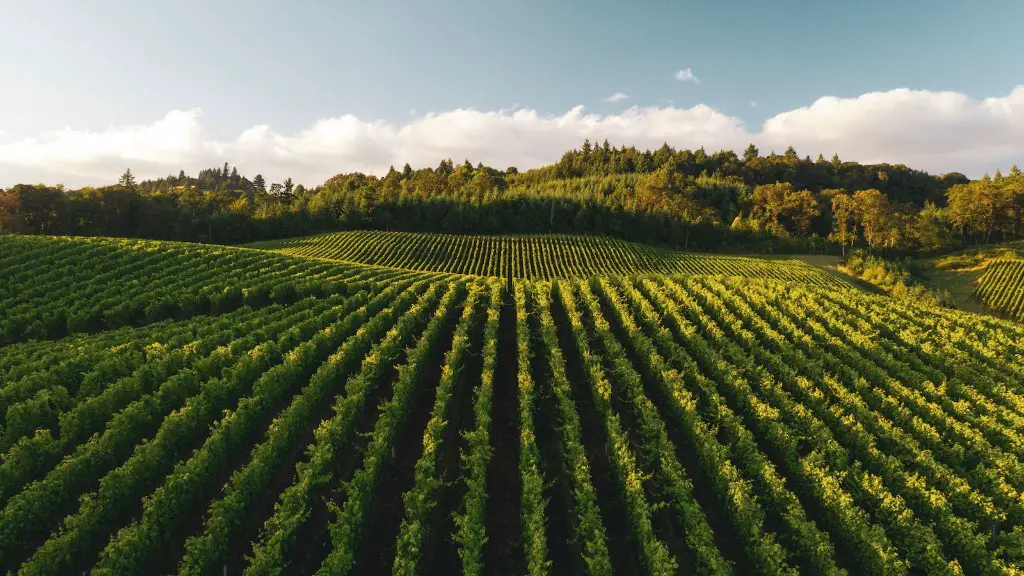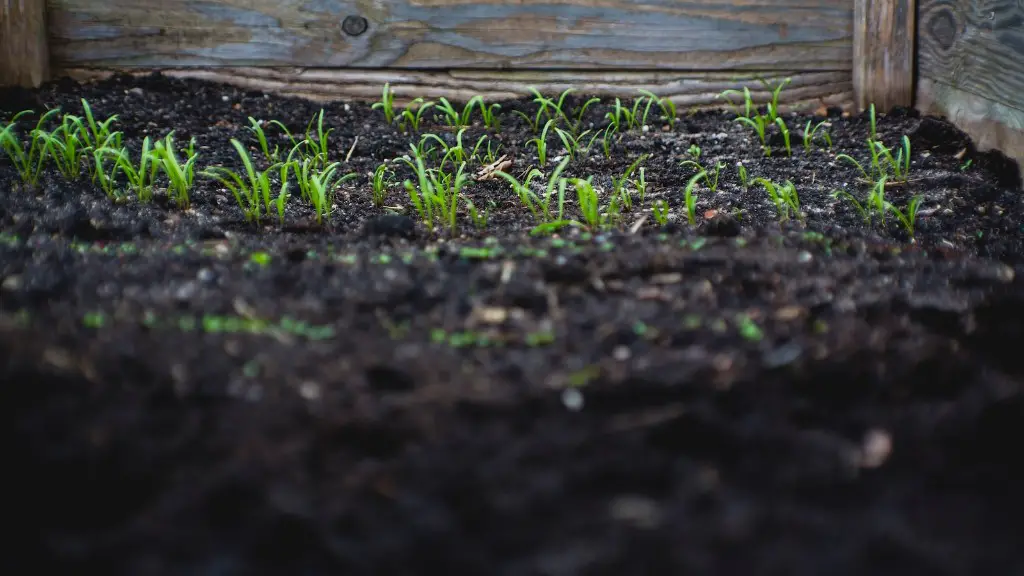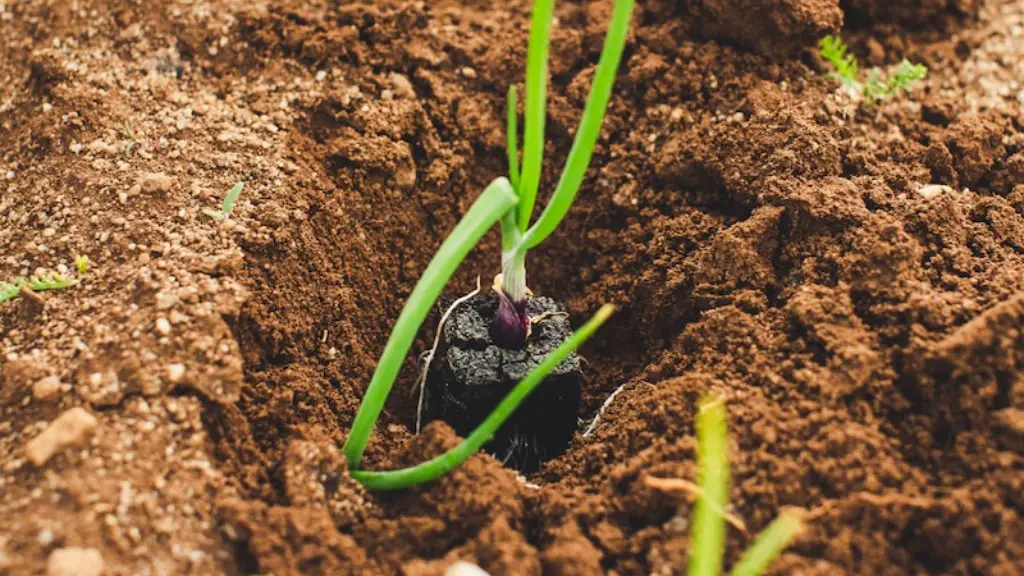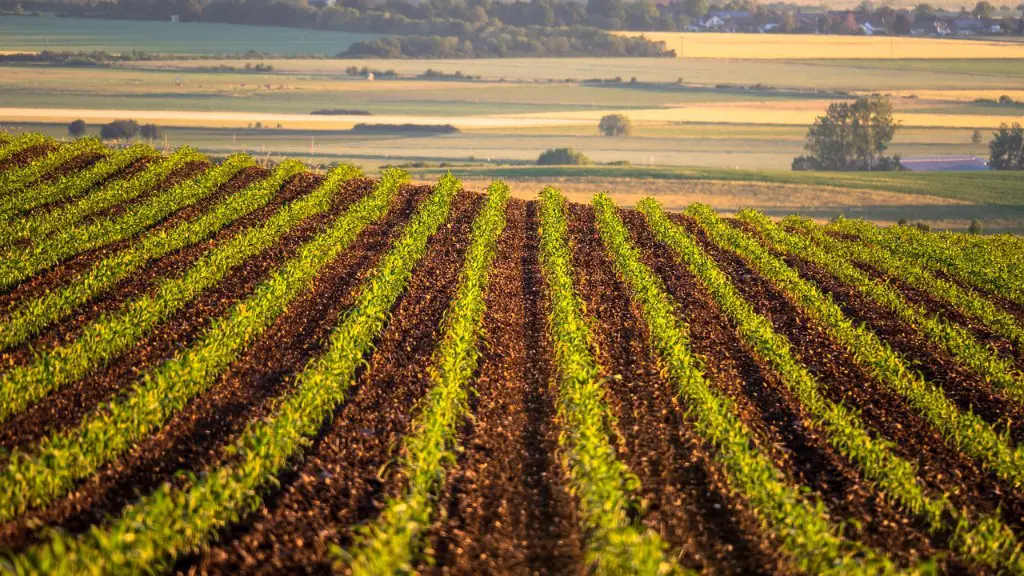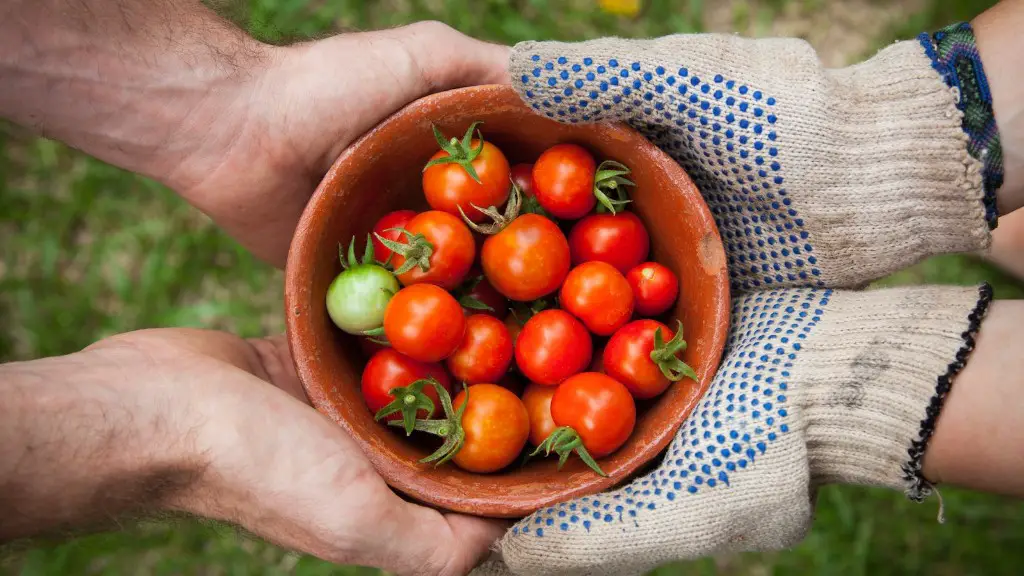Modern agriculture plays a major role in virtually every aspect of life, from fueling our everyday needs to providing food and fiber resources, and providing opportunities for sustainable economic development. Many of the world’s agricultural systems, however, are struggling to keep up with the increasing population and growing demand for agricultural products. This is why modern agriculture is so important in supporting a healthy and productive society.
Through modern agricultural methods, farmers are able to increase production and optimize land use, which in turn allows for a wider range of crops, higher yields, and improved agricultural practices. This leads to better economic performance and improved nutritional outcomes, as well as greater job opportunities for rural communities. Furthermore, by improving the efficiency of the agricultural process, the costs for consumers are lowered, allowing for greater access to healthy, nutritious foods.
Modern agriculture also allows for better use of resources through improved management techniques, such as precision agriculture. This involves using advanced technology to determine the optimal levels of fertilizers and pesticides, as well as the management of water resources, which helps to reduce environmental pollution, conserve soil health, and protect water sources. Moreover, modern agricultural techniques allow for improved sustainability of land and resources, as well as more efficient use of energy and fuel.
In addition, modern agriculture can help reduce global warming through carbon sequestration, by reducing emissions of greenhouse gases such as carbon dioxide, nitrous oxide and methane. Furthermore, modern agriculture can also help to conserve biodiversity, through careful management of land and water, as well as reducing the use of chemicals, which can lead to improved wildlife protection.
Finally, modern agriculture contributes to improved public health, by providing healthy, nutritious food to communities and even entire countries. By providing proper nutrition, farmers can reduce the risk of malnutrition, as well as reduce the risk of communicable diseases and other health issues.
Crop Rotation
Crop rotation is one of the most important aspects of modern agriculture which, when done correctly, can yield significant results that benefit both farmers and consumers. By rotating crops and altering soil nutrients, it helps prevent soil degradation, encourages soil fertility, and helps maximize yields. Furthermore, it reduces the amount of pests, weeds, and diseases that can affect crops, while allowing for different strains of crops and varieties of plants to be planted at different times of year. This helps to prevent market disruption and increases food competition, while allowing consumers to purchase produce grown with the latest agricultural technologies.
Crop rotation also allows for greater water conservation by reducing the evaporation of water that would be normally taken up by large fields of single crops. Additionally, it reduces the infrastructure needed to support the agricultural system and can improve soil structure, which helps crops better absorb the sun’s energy. By rotating crops, it helps to create a more diverse, sustainable, and resilient food production system, which is essential for ensuring future food security and enhancing global economic development.
Farmers’ Markets
Farmers’ markets are one of the fastest growing segments of modern agriculture and provide farmers with a new avenue for marketing their goods, while also providing consumers with fresh, locally-grown produce. Farmers’ markets support sustainable production and help reduce environmental damage and pollution, as opposed to large-scale industrial farms that often require large amounts of energy and water for production, as well as generate large amounts of air pollution.
Farmers’ markets also provide an opportunity for people to support their local economy and reward farmers for growing healthy, fresh food. They encourage sustainable practices and resource management, as well as provide information about food safety and nutrition, which helps to educate and empower consumers. Additionally, by buying locally produced goods, people are helping to reduce their carbon footprint and are contributing to reducing food waste.
Finally, farmers’ markets help to strengthen rural and underserved communities, as they serve as important social hubs and bring people together, while also serving as a focal point for local and regional economic growth.
Organic Agriculture
Organic agriculture continues to grow in popularity, as it is an effective way to produce high quality, healthy food while minimizing negative environmental impacts. By using fewer pesticides, herbicides, and fungicides, organic farming helps to reduce air and water pollution, conserve water resources, and improve soil health and fertility. In addition, by eliminating the routine use of synthetic fertilizers, it results in fewer health risks to farm workers and reduces the chances of chemicals entering the food supply.
Organic farming also offers consumers greater food safety, as it does not involve the use of potentially harmful chemicals and genetically modified organisms (GMOs). Furthermore, by eliminating the routine use of artificial fertilizers, it helps to preserve biodiversity, as it encourages a greater variety of species to survive and thrive. Finally, organic agriculture can improve farming communities, as it provides a steady source of income, while helping to address the daunting issues of sustainability and climate change.
Irrigation Techniques
Modern irrigation techniques are essential for helping farmers maximize crop yields and conserve water sources. These irrigation systems are designed to efficiently deliver the right amount of water, nutrients, and fertilizers to crops with minimal waste. By more precisely controlling the quantity and timing of irrigation, it prevents water loss and helps maintain soil quality, while allowing farmers to use less chemical inputs, such as fertilizers and pesticides.
In addition, modern irrigation techniques reduce the risk of water contamination, which results from excessive fertilizer or nutrient runoff. Furthermore, by properly controlling water use, it helps reduce soil erosion, which helps preserve the land for future generations. Finally, these systems are also designed for ease of use and require minimal maintenance, which helps to reduce costs for farmers and ensures that water resources are properly managed.
Innovative Technologies
Modern agricultural methods also involve the use of innovative technologies, such as sensors, drones, and other digital devices, which can aid in the gathering of data and helping farmers understand and make decisions regarding the management of their land and crops. By monitoring and analyzing this data, growers can more accurately identify areas of their farm that require attention, as well as make better predictions based on environmental conditions. This helps to boost yields while reducing costs and environmental damage, as well as helping to increase the efficiency of the agricultural system.
Finally, modern agricultural technologies also can help improve access to food and nutrition by helping to develop better crop varieties, increase crop yields, and reduce post-harvest losses. This provides greater access to food for those in need, while helping to reduce world hunger and poverty.
